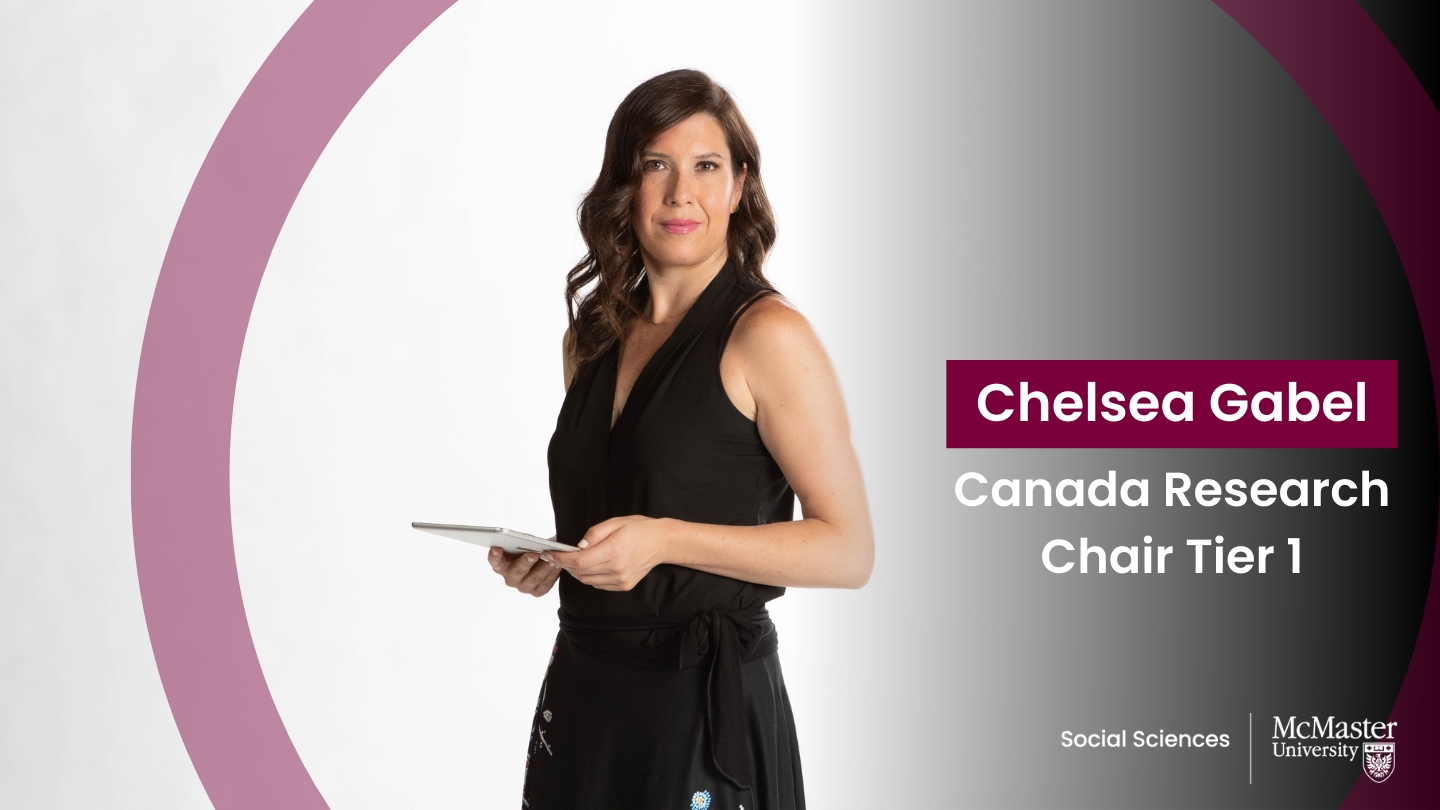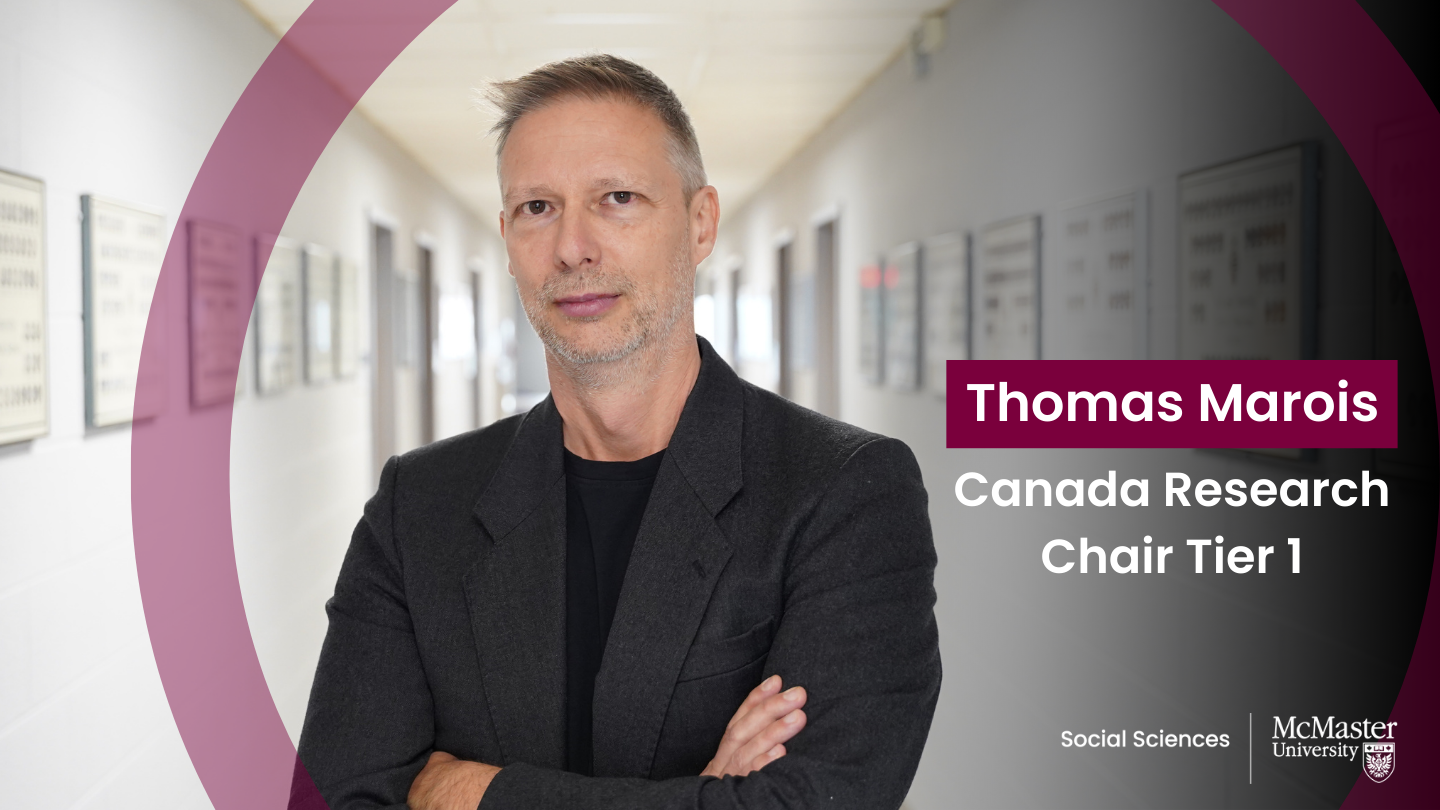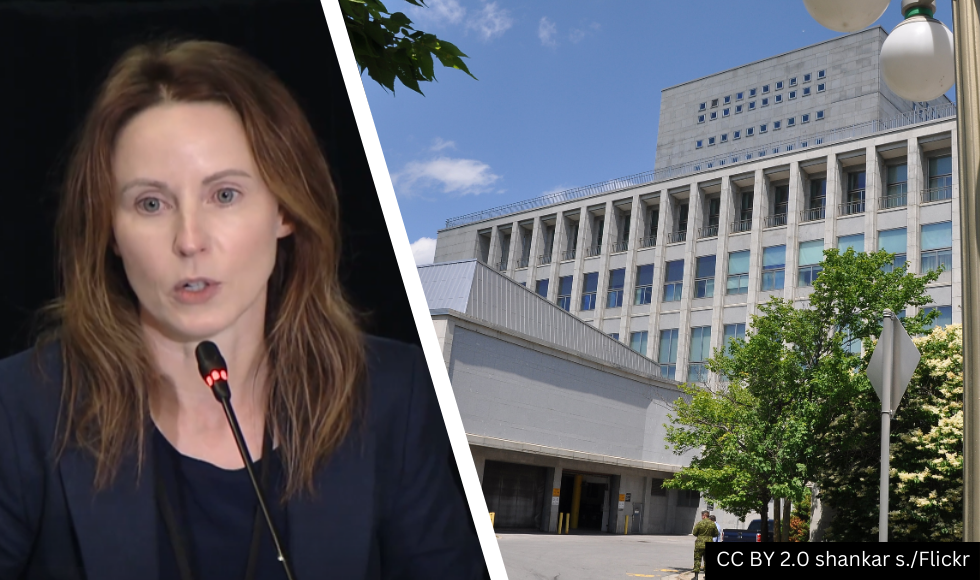Building a Partnered Learning Pathway to Restore Trust in Democracy
In the face of declining trust in democracy across the world, how can we restore faith in the political and electoral process?
That’s a question that led to faculty and staff from across McMaster meeting with representatives from all levels of government and political thinktanks and non-profits to lay the groundwork for a new academic program.
A workshop on April 13, hosted by the CIVDEM@Mac team, with support from the MacPherson Institute and the Office of Community Engagement, was the first opportunity to bring partners together to talk about what the new academic program could look like.
That academic program, under the working title ‘CIVDEM@Mac – A Partnered Learning Pathway in Civic Vitality, Democracy, and Electoral Integrity’ would provide students from all disciplines with the skills and knowledge to make a difference in shaping democracy.
Karen Bird, professor of Political Science and principal investigator for CIVDEM@Mac, said that the idea is to build a coherent curricular program that would give students the opportunity to help tackle the crises facing democracies, while developing concrete skills and also exploring career pathways in this area.
“I think we are in a pivotal moment in Canada, and in a number of advanced electoral democracies, where trust is declining, suspicion is growing, and politics and public discourse are increasingly toxic,” she said. “In addition, we know over the longer period, and beyond this era of crisis that we’re in, that youth, women and racialized groups have been underrepresented electorally and in key institutions. Yet they are among the most engaged when it comes to social activism and other non-electoral forms of participation.”
“There is an enormous potential to craft something that can be exciting for our students, because they’re concerned about their future, they want to have a voice, and make a contribution to sorting through the crisis of democracy that we’re facing.”
The project is looking to create an experiential and interdisciplinary learning pathway that will help students work towards strengthening civic vitality, democratic resilience and electoral integrity. It also seeks to empower the underrepresented to participate in the political and electoral process.
Right now, the team have started to plan what the experiential education and partnered learning could look like. Bridging classroom and practical learning with the help of organizations that have deep expertise in this area is a key part of the plan.
Joanna Massie, PhD student and project director for CIVDEM@Mac, pointed to the example of a local municipality’s election agency coming in and posing questions to students.
“A municipality might come in and say: ‘here is an issue, we don’t know what to do about it.’ It could be about re-drawing ward boundaries to ensure fairer representation. Or it could be about building outreach among marginalized communities. And then as part of their term project, students will go into groups and develop potential solutions to this issue and then report back to the partner,” she said.
The proposed program would focus on interdisciplinary learning, aiming to recruit students from across the academic spectrum, with the approach that all disciplines, from geography to finance, communication studies to political science, can play a role in restoring trust in democracy.
Bird said a good example was provided at the workshop by Dr. Selina Medavanhu, assistant professor in communications department, who teaches a course in digital storytelling.
“Digital storytelling isn’t the sort of thing we think about in political science. But Dr. Medavanhu was making a connection with how technology and storytelling can support social action, cultivate knowledge, build solidarity, but also create empathy across dissonant points of view. And I thought that is brilliant! That’s absolutely the kind of creative connection that we hope to build,” she said.
Massie pointed out that many students are often already engaged in civic life and want to contribute in a meaningful way, and this course will give them the tools to do just that.
“We talk about this university opportunity as preparing students for the real world. But, for the vast majority of students, they are already in the real world,” said Massie. “And so how can we provide them with the support, the skills, experience and knowledge? We want to train them to be able to contribute in a meaningful way in a way that’s true and authentic to themselves.”
Departmental NewsRelated News
News Listing

Associate Professor Chelsea Gabel named Tier 1 Canada Research Chair
Awards, Departmental News
November 14, 2024

Political Science Professor Thomas Marois named Tier 1 Canada Research Chair
Awards, Departmental News
November 14, 2024

Political Science associate professor Andrea Lawlor testifies at Canadian Commission on Foreign Interference
Departmental News
November 12, 2024
